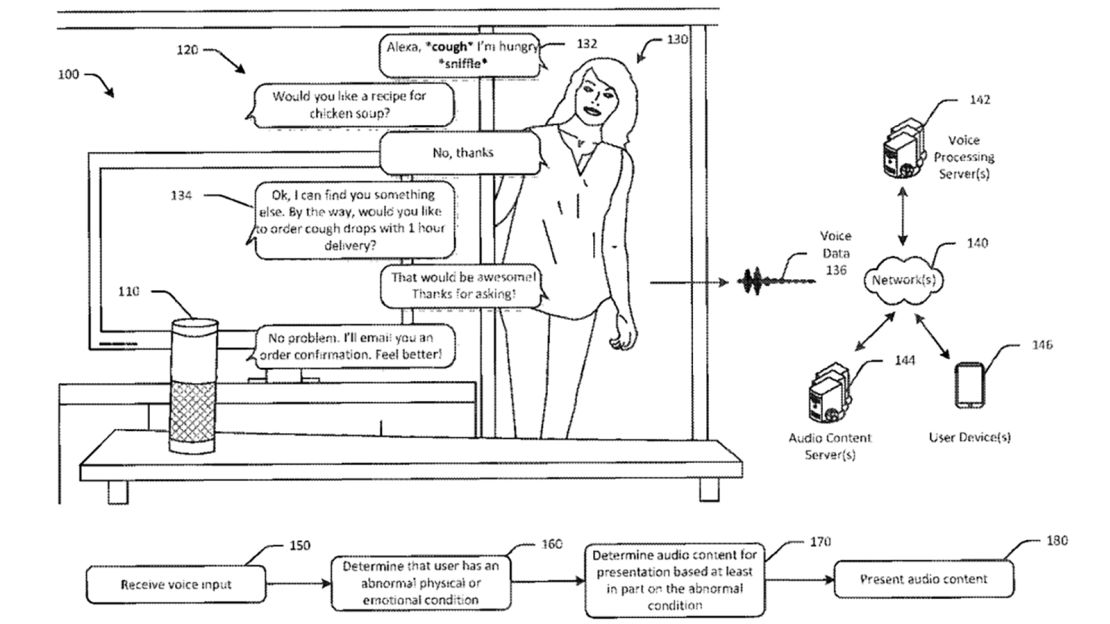Alexa, how am I feeling today?
Amazon may be getting into the business of reading your emotions. The teams behind Amazon’s Echo smart speaker and Alexa’s voice are joining up to build a voice-activated wearable for your wrist, according to Bloomberg, citing an anonymous source.
The smart watch or smart band will reportedly have built-in microphones that pick up on emotions by listening to your voice.
Amazon patented some of that technology in a 2017 patent, which shows a woman saying, “Alexa, I’m hungry,” while coughing and sniffling. Alexa then hears the woman is sick and offers a recipe for chicken soup and asks if she wants to buy cough drops to be delivered within the hour.

Amazon also says in the patent application that Alexa could take into account a user’s gender, age, ethnicity and whether they are sick, crying, happy, sad, tired, excited, or other states. If a user were bored and sleepy, Alexa could be programmed to respond, “By the way, this singer just released his new album for just $1.99. Do you want to preview it?”
Amazon is testing the device, but it’s not clear how close the device is to market, according to Bloomberg. It’s also possible the wearable will remain an experiment and never be commercialized.
“We do not comment on rumors or speculation,” Amazon told CNN Business.
It could be a business opportunity for Amazon to encourage people to use Prime Now delivery and buy things when they’re feeling emotional. Whatever you’re feeling, Alexa might be able to guess and make a sale off it.
“Could it work? I’m skeptical until proven otherwise,” says IDC research director Ramon Llamas, “That’s something a human could pick up on, but I’m not sure if a machine/smart assistant could.”
Amazon isn’t the only company to look into programming artificial intelligence to be able to sense your emotions. Apple filed a patent application in 2017 for a device, described as similar to a HomePod, that would guess that you were sad by listening to your voice. Its reaction was less transaction-like and more about commiseration: An emoji-based version of Siri could then look sad alongside with you.




















